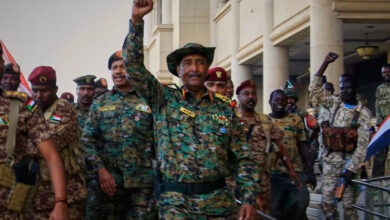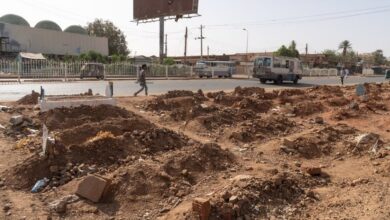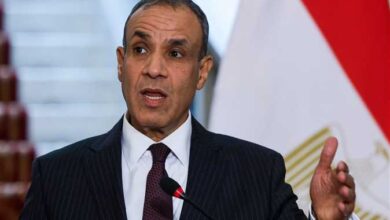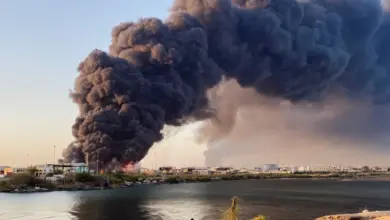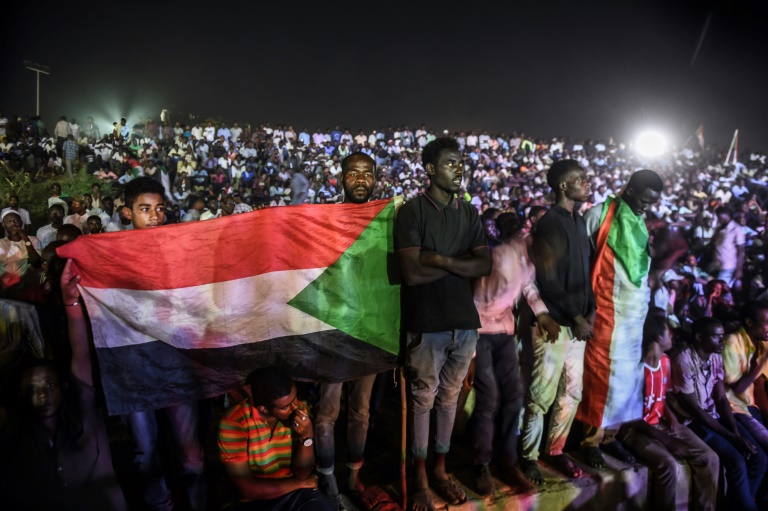
KHARTOUM (Reuters) – Tens of thousands of Sudanese demonstrators converged on central Khartoum on Thursday night demanding civilian rule amid increasing tensions with the country’s military rulers who accused a protest encampment of threatening stability.
The protest, which followed a two-day strike organized by demonstrators and opposition groups frustrated by a deadlock in talks on a transition to democracy, underscores the volatility of the situation in Sudan nearly two months after the military overthrew autocrat Omar al-Bashir.
The head of the central Khartoum military region accused “unruly elements” of attacking a vehicle used by the paramilitary Rapid Support Forces (RSF) and seizing it near the protest site.
“The protest site has become unsafe and represents a danger to the revolution and the revolutionaries and threatens the coherence of the state and its national security,” General Bahar Ahmed al-Bahar, head of the central region in Khartoum said in a statement he read on television.
Tens of thousands of protesters had converged on an encampment heeding a call by protest leaders to step up pressure on the Transitional Military Council (TMC) to hand over power to civilians, following a two-day strike observed earlier this week.
Protesters have accused the RSF of trying to undermine a transition to democracy, a charge the force denies.
Sudanese security forces on Thursday delivered an order by the TMC to close down the offices of Qatar-based Al Jazeera Television without giving a reason, the head of the office said.
TMC officials could not immediately be reached for a comment on the report.
Stability in strategically located Sudan is crucial for the security of a volatile region struggling against Islamist insurgencies, including the Horn of Africa through Egypt and Libya. Various powers, including wealthy Gulf Arab states, are trying to influence its path.
A Reuters witness said that the protesters who had converged on the protest site chanted slogans against the RSF, a paramilitary force led by the deputy head of the Transitional Military Council, Mohamed Hamdan Dagalo.
“Support get out,” the crowds chanted, referring to the RSF. Some stood in front of military trucks used by the force which controls the capital.
Dagalo, who goes by the name Hemedti, has accused protesters of receiving support from abroad and said they were not entitled to claim they speak for all Sudanese.
Talks between the Declaration of Freedom and Change Forces (DFCF), a coalition of demonstrators and opposition groups, and the TMC have stalled amid differences over whether the military would control a proposed sovereign body that would lead Sudan during a three-year transitional period.
The DFCF had previously said that the military council has demanded a two-thirds majority, of eight to three, on the sovereign council that will lead the country of 40 million.
The coalition had called for a two-day strike of public and private enterprises from Tuesday, and threatened to call for general civil disobedience if the military does not heed their demands.
Sadiq al-Mahdi, head of Sudan’s largest political party, proposed on Thursday that a government of technocrats be established to govern while the two sides negotiated an agreement on the composition of the sovereign council.
Reporting by Ali Abdelaty; writing by Sami Aboudi; editing by Grant McCool

